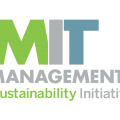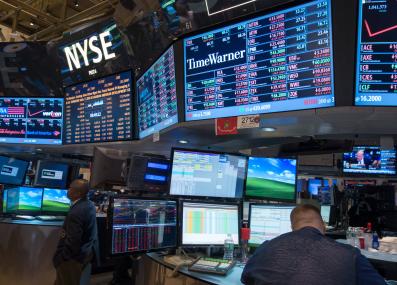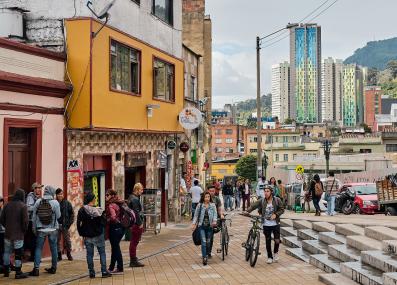Have a question?
What are some major employment opportunities in the climate space?
Rapid action to adapt to climate change and build a clean energy economy will create huge numbers of jobs—only some of which will require new skills or advanced education.
August 7, 2023
The “green jobs” are coming. As the world races to cut its greenhouse gas emissions and build a clean energy economy, forecasters have predicted a huge number of jobs will be created in fields related to sustainability and climate. Jason Jay, senior lecturer and director of the Sustainability Initiative at MIT’s Sloan School of Management, says a wide variety of roles and careers will fall under this umbrella.
Most obviously, a clean energy economy will create work for people with technical certifications and backgrounds. The construction of wind turbines, the installation of home solar panels, and the design of electric vehicles are just a few examples of spaces where electrical, construction, and manufacturing experts will be in high demand. So will traditional construction workers who will pour the concrete for wind turbines or build roads out to far-flug solar farms.
Some new technical jobs will require advanced degrees: it will take a small army of engineers to design solutions for sustainable transportation or carbon storage. Others will go to skilled technicians who have gone through trade schools, like the large number of electricians needed to upgrade homes and businesses to use more electric appliances and vehicles.
“If we think about the ramp-up of electric vehicles and the electrification of building heating systems like heat pumps,” Jay says, “the electric utility companies are going to have to grow and offer more capability to handle all of that, and to oversee the solar panel installations and everything else. So there's going to be some job growth in adjacent sectors to some of these technological implementations.”
What may be less obvious is the new wave of sustainability-related jobs for people with more traditional business experience, Jay says. He cites the helpful framework developed by Duke University’s Katie Kross to highlight how green jobs will appear across the economy.
First, consider a company whose whole purpose is climate-related. This could include firms that install solar panels, sell carbon offsets to corporations, or gather and collate reliable climate data. These companies will need accountants, lawyers, marketers, HR representatives—all the standard roles that come with running a business. Secondly, Jay says, new sustainability-focused roles will appear at traditional companies. These include the new breed of “chief sustainability officer” now present at many large corporations, as well as workers who bring an eye for sustainability to their existing roles.
Insurance companies, for example, will employ many more people in risk assessment to understand the increased likelihood of disasters like floods and wildfires because of climate change. Factory managers trying to meet their firms’ climate goals—or dealing with new policies that restrict climate pollution—will need to worry about not only running a shop efficiently, but also how to minimize greenhouse gas emissions. Venture capital firms, banks, and other financial groups will hire employees versed in sustainability to decide which climate projects to fund or invest in. For example, Jay says, the Department of Energy has already had to hire more loan officers to deal with money being dispersed to clean energy projects through the Inflation Reduction Act and other recent legislation.
Because of the broad-reaching effects of climate change, jobs not currently seen as “sustainability work” may start to be viewed through that lens. Suddenly, installing and maintaining air conditioners is crucial to get through extreme summers. The same could be true for home maintenance. “Some of the most substantial property damage to come from climate change in the next 15 years is from basement flooding,” Jay says. “Basement flooding destroys value, but there are jobs created in the process of trying to prevent basement flooding and cleaning it up.”
Young people who want a sustainability-focused career, or established workers seeking a career change, have plenty of choices open to them. Many technical jobs will require a particular certification, degree, or background. By contrast, Jay says, white-collar careers in sustainability will require a suite of “soft skills” which many workers in traditional industries already have.
“You can't tell the factory manager what to do,” Jay says. “You have to go to them and problem-solve about how they can achieve their corporate climate goals. That ability to be an influencer—it's an extremely high level of soft skills that are required to be successful in those types of jobs.”
Thank you to Ben Bokaer of Ithaca, New York, for the question. You can submit your own question to Ask MIT Climate here.








